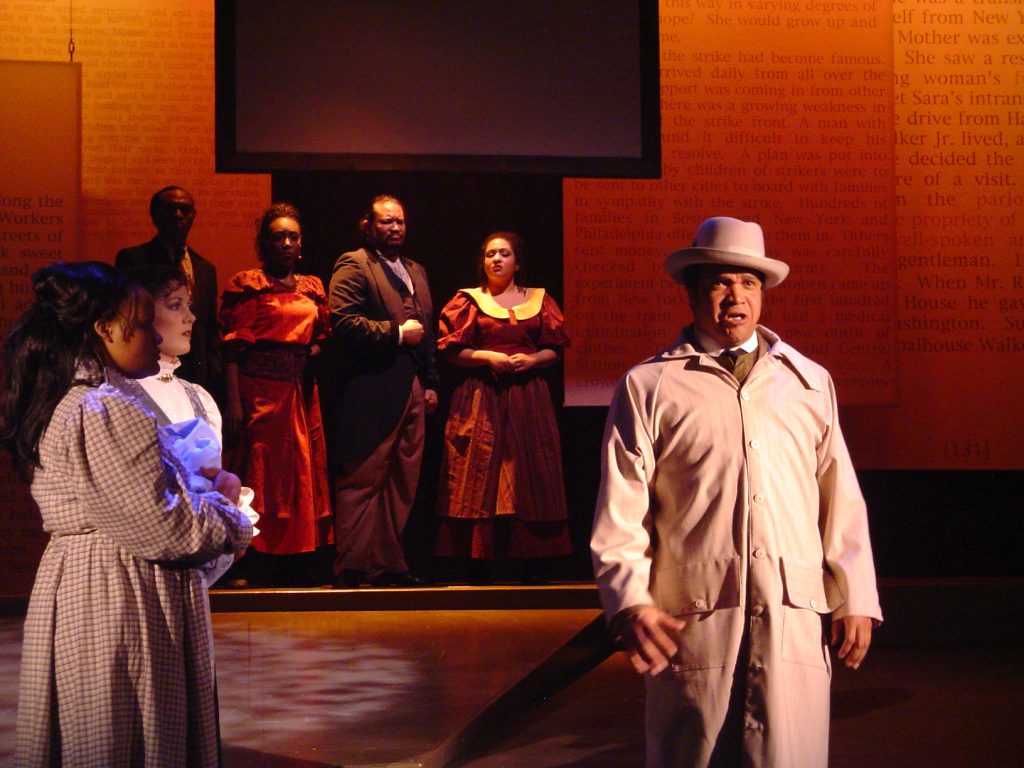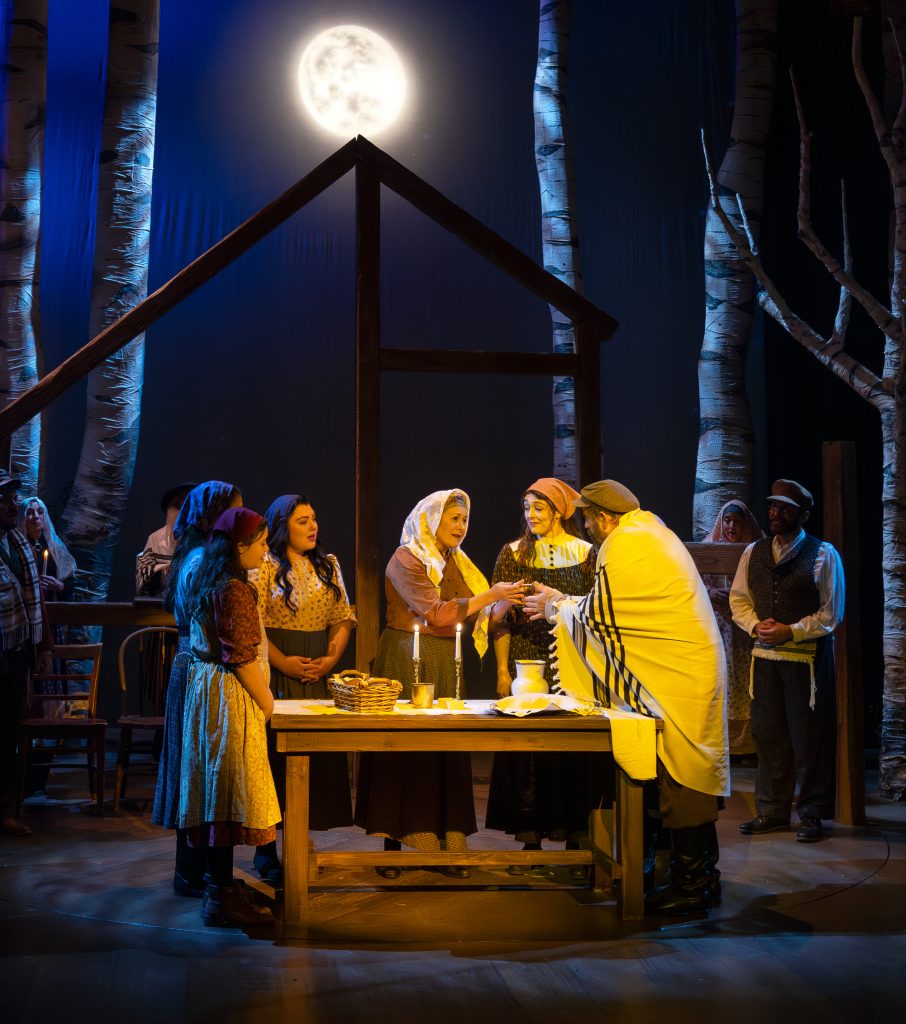
A chapter in Boulder’s cultural history ended Jan. 14 at 12:09 a.m., when the last notes of Fiddler on the Roof reverberated through the BDT Stage hallway. After nearly half a century, the long-running cornerstone of the performing arts community lowered its curtains for the last time, leaving behind a rich legacy and an uncertain future for dinner theaters in Colorado.
“Production-wise, we were at the top of our game,” says executive producer Michael J. Duran. “It’s too bad BDT is closing now, but every show closes. We had a good run.”
Founded as a 275-seat venue at the corner of 55th Street and Arapahoe Avenue, BDT Stage grew into a local staple, beloved for its engaging productions and intimate setting. Its final year, despite an impressive 95% capacity run since June, was a bittersweet farewell to a cultural staple that launched the careers of actors such as Amy Adams and had weathered nearly five decades of changing tastes and economic pressure.
“I was part of the very first acting company here in 1977; it was my very, very first theater job ever,” Duran recalls. “I was a little afraid that because these guys were just starting, it was going to be rough. It was for a couple of years, and then things just started snowballing and it developed into a wonderful creative force in Boulder. Patrons have grown to expect the best from us, and we’ve always tried to give them our best.”
“BDT was Broadway to us,” says Jalyn Webb, the director of marketing and sales at Candlelight Dinner Playhouse in Johnstown, one of Colorado’s last dinner theaters. “Their contribution to Northern Colorado’s arts landscape is staggering, and their legacy needs to be recognized. It makes me happy that they were able to have this final season and leave on their own terms rather than being defeated by COVID.”
BDT owners Gene and Judy Bolles agreed to sell the 12,000-square-foot property to Chicago-based Quad Capital Partners for $5.5 million in June 2022. It was the beginning of the end. Producing artistic director Seamus McDonough, whose family history is inextricably linked with BDT, crafted a final season in tribute to the theater’s legacy.
“There really are no words to describe the feeling of being able to grow up in this space and having my family as part of this family,” McDonough says. He worked in the theater for 24 years, beginning as a janitor when he was 14. His father was an original employee, his mother worked in the box office for many years and his siblings did a variety of odd jobs such as bussing tables, wrangling children and working the spotlight.
“The main thing that everybody says when they think of BDT from a working perspective is family,” he says. “Our patrons also essentially let us into their families and we let them into ours. We’ve gotten to watch parents become grandparents and kids grow up, and they saw our kids grow up. It’s been an amazing relationship.”
Duran and McDonough’s career highlights include their 2007 collaboration with Jeffrey Nickelson, founder of Shadow Theatre, on Ragtime; White Christmas during the first holiday season after the pandemic in 2021-2022, and the recent staging of McDonough’s passion project, Something Rotten, in 2023 as the company’s only new production during its final season.
“The overwhelming sentiment from the folks who have been here for years and years has just been, ‘Thank you,’ and ‘We can’t believe that it’s going away,’” says McDonough. “We’ve had people come in celebrating their anniversary, and they’ll say, ‘We got engaged here,’ or ‘We came on our first date here.’ And there are so many of those stories. We had a woman here last week who is in hospice care, and I get choked up talking about it, but it was her dying wish to see this show, so they brought her over in an ambulance to see Fiddler.”

‘A tough sell’
Behind the successful productions and the adoration of audiences lay the harsh realities of running a for-profit dinner theater. The shift in consumer tastes and Boulder’s increasing tax rates were critical factors in sealing BDT’s fate.
“It’s difficult because we have to pay an admission tax, property tax and sales tax, which means $15 to $20 [from] every ticket goes to those taxes,” says McDonough. “We have to raise our ticket prices, and it gets out of the range of what people can afford. Since we can’t add any more seats to keep ticket prices lower, we are sort of in a conundrum. We had no way to fix that unless Boulder gave us a tax break.”
Although Duran says he lobbied Boulder’s City Council to support the theater, he says the City ultimately only helped BDT secure a grant at the beginning of the pandemic.
“I went to the City Council and explained our situation,” Duran recalls. “I said, ‘Please come and see what we do,’ because many of the City Council members had never been here. I think maybe one or two of them might have shown up to see what we did, but they didn’t care at that point. …They helped during COVID, so I can’t bad-mouth them too much, but when we produce shows of the caliber we do, it costs money. We have to pay actors and staff.”
Editor’s Note: Boulder Weekly reached out to multiple council members for comment, but none recalled this request for financial support from BDT Stage.

History of Colorado’s Dinner Theaters
BDT Stage’s closure is emblematic of a larger trend affecting dinner theaters across Colorado — economic pressures and changing times and tastes. During their heyday in the 1970s and ’80s, dinner theaters were a cultural staple throughout the state. This era saw the rise of venues like The Crystal Palace in Aspen, Country Dinner Playhouse in Greenwood Village and The Wayside Inn in Berthoud, among others.
These establishments combined the allure of live performance with the convenience of dining, offering an all-encompassing evening out. But the landscape began to shift as consumer preferences changed. The advent of new entertainment options, the rise of digital streaming and the fast-paced nature of modern life gradually diminished the appeal of a five-hour dinner theater experience.
“People’s attention spans are shorter,” says McDonough. “It’s hard to have that model for today’s demographic of people who are looking for entertainment.”
The economic model of dinner theaters makes them particularly vulnerable. The costs of producing a high-quality production combined with the expenses of running a full-service dining operation often resulted in ticket prices that had to be carefully balanced against audience expectations and willingness to pay.
“Dinner theater always got a bad rap,” Duran says. “People assume it’s going to be bad theater or bad food. I think we’ve proven them wrong, but it’s still hard to get people to think otherwise.”
The decline was a gradual ebbing away of a once-thriving scene. The closure of iconic venues like The Crystal Palace and The Chuckwagon Dinner Playhouse, and the transformation of others into different forms of entertainment venues, signaled a changing tide. This decline was further accelerated by the economic pressures like rising real estate prices, especially in areas like Boulder that have become increasingly tech-focused.
“Dinner theater is a tough sell,” says Scott Moore, who co-owns Longmont’s Jesters Dinner Theatre, the last remaining dinner theater in Boulder County. “There used to be a bigger market for dinner theaters. I heard BDT was struggling before they sold, which surprised me because they are, in my opinion, the Cadillac of local dinner theaters. It’s a shame to see them go.”
Although Jesters announced its closure in May 2022, no one came forward to buy the property.
“Months went by, the building wasn’t selling and we had a bunch of bills, so we decided to get back on stage and keep things going,” says Moore. “I imagine we will be in a similar situation as BDT: The property will sell, and we will have a certain amount of time to close. We won’t close before the sale of the building closes, but our time is limited. I imagine we’ll be in business for another year and a half to two years.”

‘BDT has made my life full’
McDonough is in talks with the Museum of Boulder about installing an exhibit to honor BDT’s historic impact on the community. The challenge now is to reimagine this experience for a new generation so that it does not exist solely in a museum.
“Someone has to come in and fill the void,” says Duran, who is retiring from theater to paint and travel. “I do not know who, and producing theater is not for the faint of heart. Ross Haley, Duane and Jody Sarbaugh and P. Douglas McLemore were the ones who started this whole thing. They were school teachers, accountants and administrative assistants, and they put this together. It’s just remarkable. They were very brave.
“And to Gene and Judy Bolles, who came in and rescued this theater in 2003, my hat goes off to them for keeping us alive this long,” he continues. “They didn’t have to do it — he’s a doctor and she’s a physical therapist — but they did, and they did put their faith in us. I hope that we did them proud and made the theater what they wanted. I can’t thank everyone enough — the staff, crew, our whole acting company and anyone who ever stepped foot in the building. It’s been an amazing journey with these people, and BDT has made my life full.”
